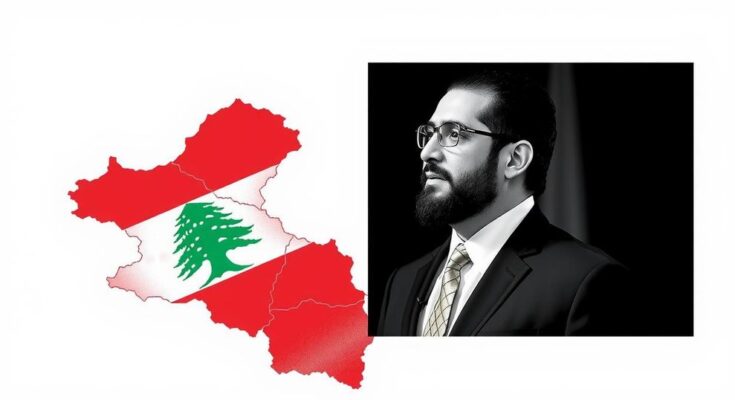Lebanon prepares for a crucial presidential election that could redefine its political landscape and sovereignty. With a clear absence of presidential leadership since October 2022, the upcoming vote may determine Hezbollah’s influence and the future of the state amid ongoing crises. The candidate landscape includes Joseph Aoun, signaling potential shifts in governance and a path toward stability.
Lebanon is poised for a pivotal presidential election, with the Parliament preparing to convene for the thirteenth time in a bid to elect a successor following the vacancy since October 2022. This election, initiated by Speaker Nabih Berri of the Amal movement, is critical as it may determine the country’s capacity to reclaim sovereignty after military confrontations with Israel and will test Hezbollah’s regional influence. A new president may help operationalize the recent ceasefire that necessitates Hezbollah’s withdrawal from Israeli engagement while empowering the Lebanese Army to solidify control in southern Lebanon, historically dominated by Hezbollah.
The path to the presidency has been fraught with complexities, as a lack of consensus among pro- and anti-Hezbollah factions has thwarted previous electoral advancements. The leading candidate emerging from this context is Army Commander Joseph Aoun, whose proposed election is eagerly supported by international entities, including Saudi Arabia and the United States, highlighting a shifting political dynamic where Iranian influence appears to be waning. In his recent statements, Aoun emphasized that he seeks to avoid conflict with Hezbollah, suggesting a potential avenue for cooperation amid significant political instability. Additionally, other notable candidates, such as Jihad Azour and Samir Geagea, face opposition from the formidable entity of Hezbollah, which retains substantial parliamentary power despite recent setbacks.
The context surrounding Lebanon’s upcoming presidential election is shaped by a lengthy political deadlock and external pressures following heightened conflicts with Israel. The implications of this election are vast, as Lebanon has been without a permanent president for over a year, thus depriving it of essential executive leadership in a time of dire economic and political crises, exacerbated further by military engagements in recent months. The situation remains precarious, with numerous factions vying for power, and the outcome of this election could either stabilize the country or amplify ongoing divisions.
In conclusion, Lebanon’s presidential election represents a critical juncture in its political landscape, offering potential pathways to regain sovereignty and stabilize governance. The choices made during this election will resonate beyond Lebanon, affecting both regional dynamics and international support crucial for reconstruction efforts. The outcome will either reaffirm Hezbollah’s influence or pave the way for significant reform and enhanced state control over national security. The election is not just a domestic affair but is intrinsically linked to broader geopolitical trends and the quest for stability in Lebanon’s fragile political climate.
Original Source: www.jpost.com




